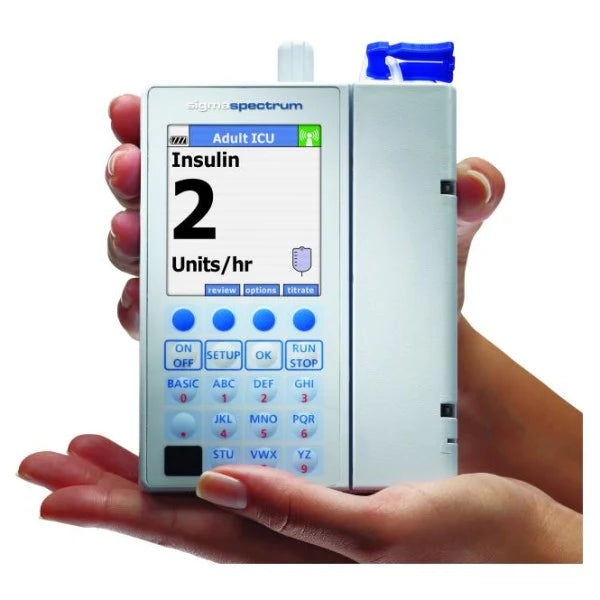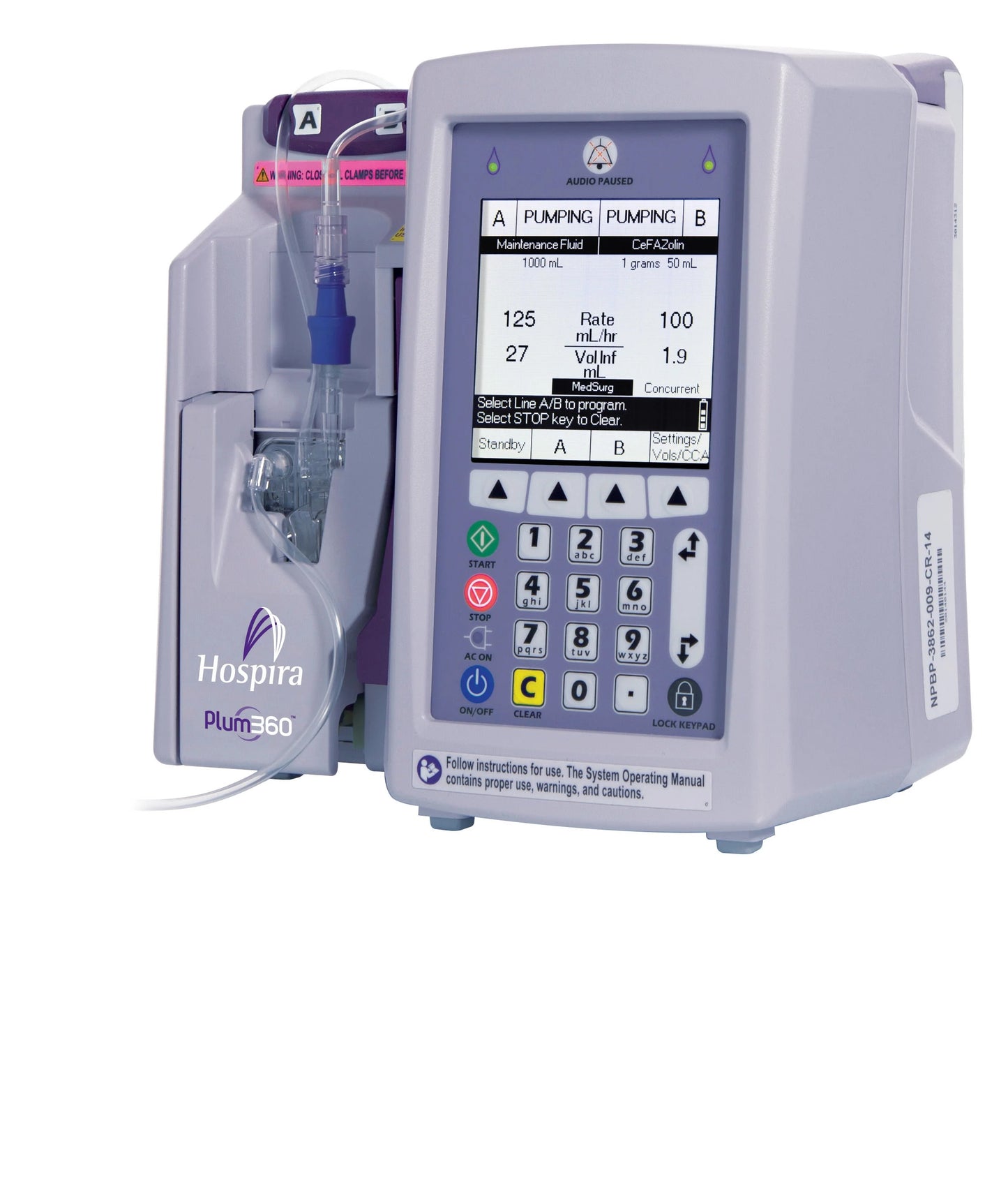
How To Use an Infusion Pump
Infusion pumps are essential medical devices that ensure the controlled and precise administration of intravenous fluids, medications, and other therapeutic solutions. Whether you're a healthcare professional or a patient needing long-term care at home, understanding how to use an infusion pump correctly is crucial for delivering effective treatments while prioritizing safety. In this blog post, we will guide you through the process of using an infusion pump.
1. Prepare the Pump
Gather Supplies: Before starting, ensure you have all the necessary supplies ready, including the prescribed medication or fluid, IV tubing, and any additional accessories or disposables required.
Check the Pump: Inspect the infusion pump for any damage or malfunction. Make sure it's clean and in proper working condition.
2. Set Up the Pump
Power On: Turn on the infusion pump according to the manufacturer's instructions. Many infusion pumps have an intuitive touchscreen or button-based interface for easy navigation.
Load the Medication: If not preloaded, load the medication into the pump's medication chamber. Make sure to follow aseptic techniques and any specific instructions provided with the medication.
3. Prime the Tubing
Connect Tubing: Connect the IV tubing to the pump and to the patient's IV site. Ensure all connections are secure.
Prime the Tubing: Priming the tubing removes any air bubbles and ensures that the medication reaches the patient as intended. Follow the pump's instructions to prime the tubing.
Verify Flow Rate: Double-check that the set flow rate matches the prescribed rate for the medication or fluid being administered.
4. Program the Pump
Input Parameters: Use the pump's interface to input the required parameters, such as the infusion rate, volume to be infused, and any other specific settings as per the doctor's orders.
Activate Alarms: Ensure that any safety alarms are activated. Alarms can alert you to issues like occlusions, low battery, or the completion of the infusion.
5. Start the Infusion
Begin Infusion: Once all parameters are set and you've confirmed everything is in order, start the infusion by pressing the appropriate button or command on the pump.
Monitor Regularly: Continuously monitor the infusion to ensure it's proceeding as intended. Keep an eye on the pump's display and listen for alarms.
6. Manage and Troubleshoot
Address Alarms: If an alarm is triggered, follow the pump's instructions for addressing the issue. This could involve checking for obstructions, verifying the IV site, or resolving any other potential problems.
Documentation: Keep detailed records of the infusion process, noting the start and end times, any alarms, and the patient's response.
7. Complete the Infusion
End the Infusion: When the infusion is complete, safely stop the pump by following the manufacturer's guidelines. Disconnect the IV tubing from the patient's IV site.
Dispose of Supplies: Dispose of any single-use supplies properly, following medical waste disposal protocols.
Using an infusion pump correctly is essential for delivering precise and safe medical treatments. Whether you're a healthcare professional in a hospital setting or a patient receiving care at home, following the steps outlined in this guide will help ensure the accurate administration of intravenous medications and fluids. Always consult with a healthcare provider for specific instructions and guidance on using an infusion pump for your particular situation.
If the IV pump is not working properly, contact United Infusion for our expert infusion pump maintenance services that include: infusion pump repairs, calibration, cleaning and troubleshooting.




